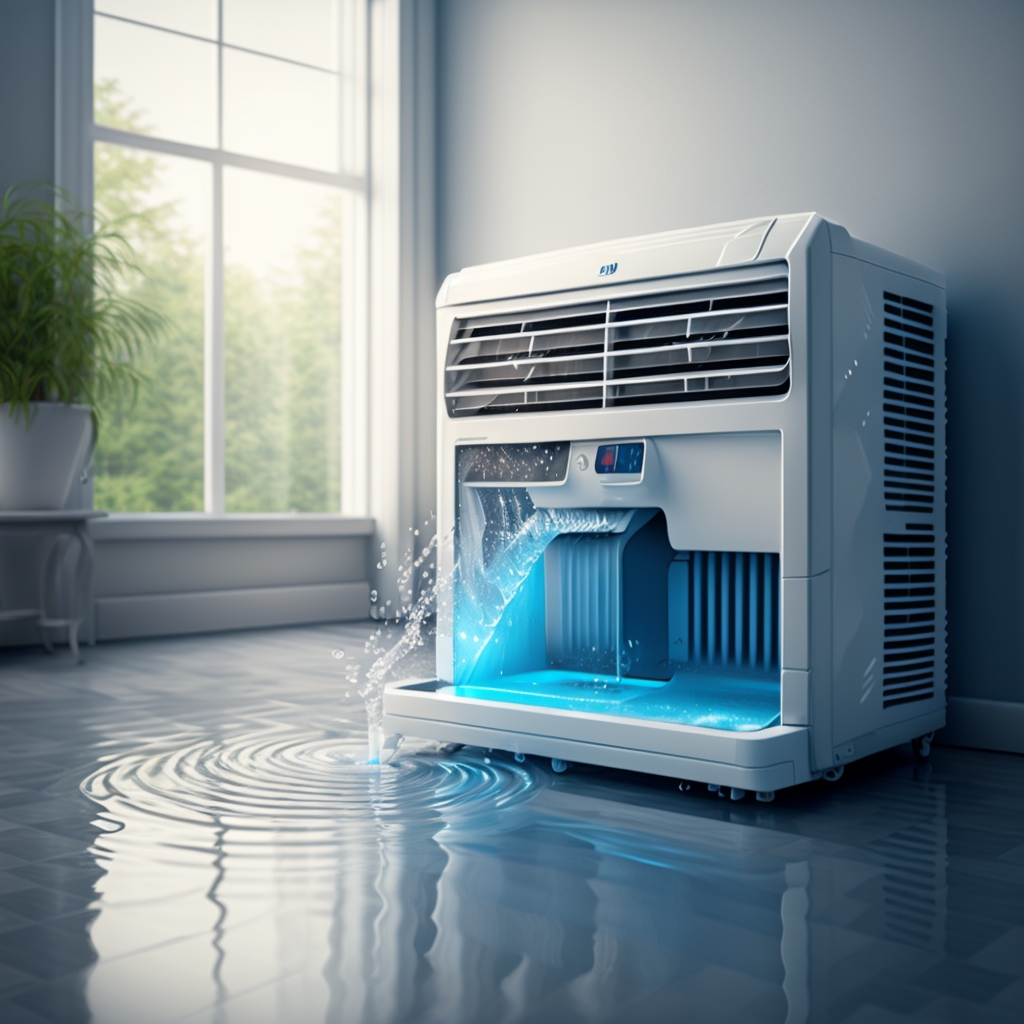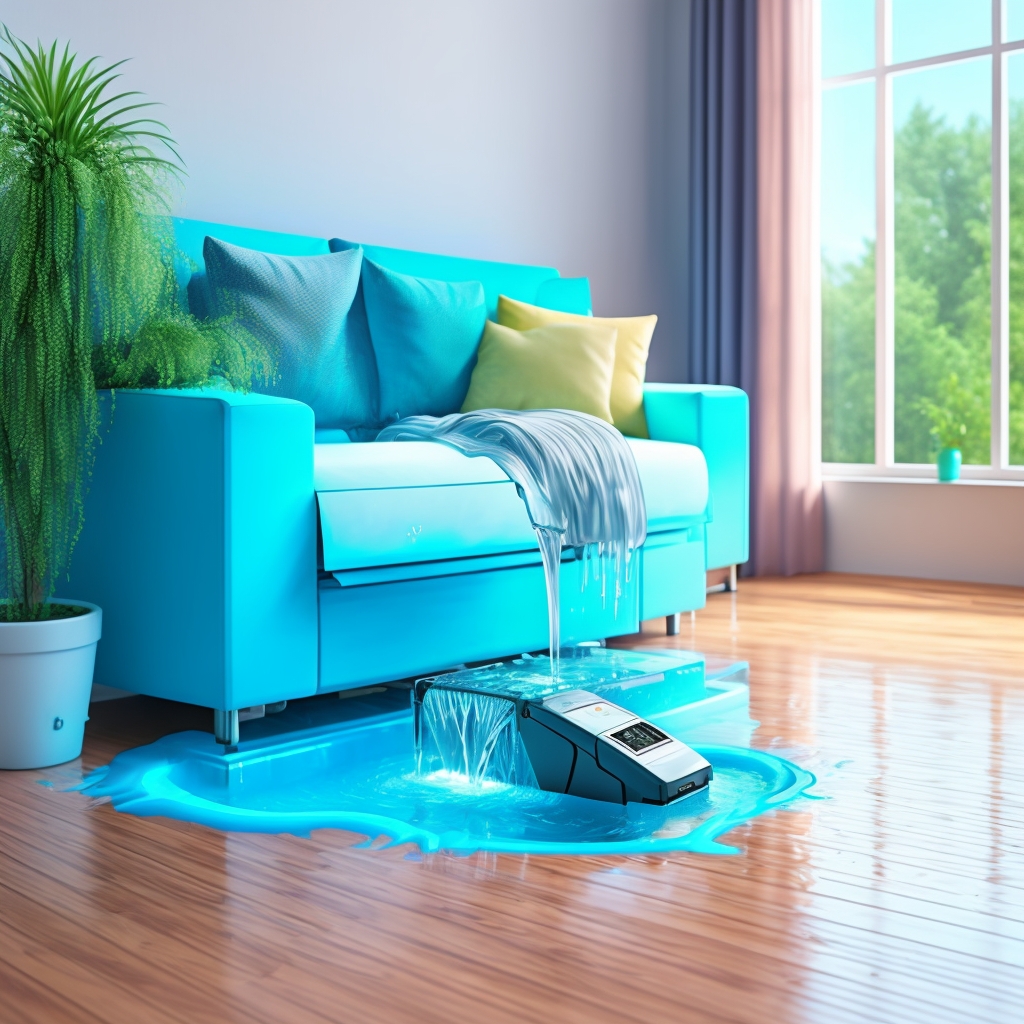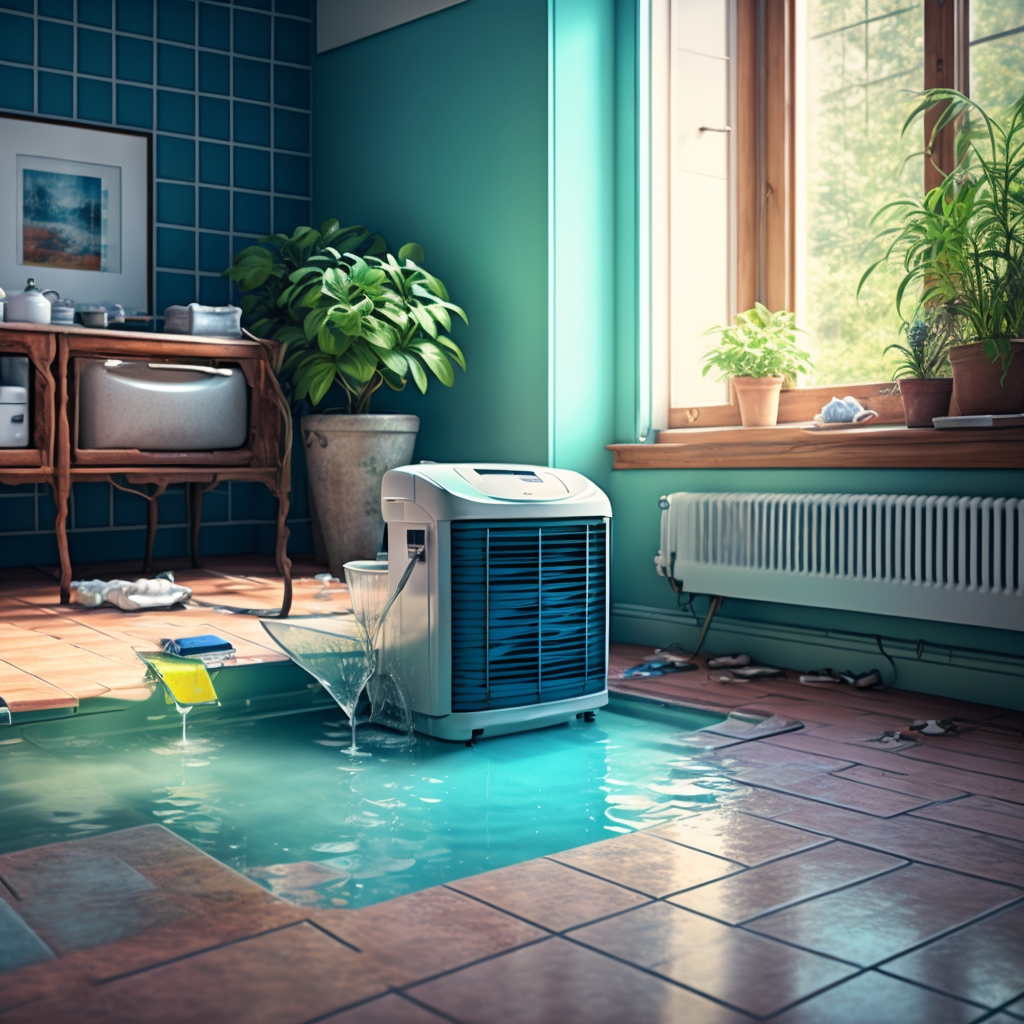Is It Dangerous When your Air Conditioner Leaks Water? Find Out Now!

Consistently damp conditions caused by air conditioner leakage may pose minimal immediate threat, but over time, it could lead to a variety of damaging consequences. Occasional moisture drops seeping from the air conditioning unit, due to frost formation, may not be troubling. However, constant daily leakage signals a serious underlying problem that urgently needs to be rectified. If left unattended, it can provoke several detrimental issues including:
1) The Emergence of Mold and Mildew
A significant consequence of persistent water leakage from an air conditioner is mold accumulation. Thriving in moist environments, once initiated, mold’s proliferating growth is relentless until the root of the issue is addressed. Water-induced damage to the walls surrounding the AC unit can exacerbate the issue further, potentially triggering carpet rot – a cost-intensive problem. Persistent contact with wet surfaces leads to continual wall rot which mandate eventual removal and replacement with new drywall. If the situation extends over multiple rooms, it could indicate a compromise in the structural integrity of your house’s foundation, eventually causing future structural damages and a spike in utility bills due to the uncomfortable living conditions. The combination of a food source and humidity provides the perfect breeding ground for mold, presenting severe health risks such as allergies and respiratory diseases, especially for pets or children with weaker immune systems.
2) Architectural Damage
When a non-trivial area of drywall is compromised by continual leakage from the air conditioner, it risks weakening the foundation of the house from persistent moist conditions, jeopardizing structural integrity and leading to potential collapse. It is essential for the pictorial durability of your home to have a suitably insulated roof featuring an optimal inclination for rainwater drainage. If water solidifies under the roof, this could damage or break the shingles, contributing to future leakage problems.
3) Potential for Appliance Damage and Fire
Water drips from your AC unit could signal the erosion of pipe insulation due to continual exposure to wet conditions. This can result in corrosion, hazardous to the appliance’s functionality and possibly leading to fire threats. Wires susceptible to corrosion can generate enough heat to ignite flames. Prevention is possible through appropriate insulation and installation of the piping system.
4) Rising Utility Bills
Despite the air conditioner’s moderate operational expense, persistent leakage could inflate energy bills. If your AC is leaking, it might suggest a potentially serious issue like refrigerant leakage, demanding higher energy consumption to yield the required temperature difference.
5) Electrical Hazards
Moist conditions can trigger electrical complications. A wet environment harboring electric current can generate a short circuit, signalling a potential fire risk. This underscores the importance of remedying the problematic area before further AC use.
6) Health Perils from Refrigerant Leakage
Air conditioners contain refrigerant to cool surrounding areas by transforming them into gaseous vapor and emitting heat via their coils. Small amounts of refrigerant are non-toxic, but their main constituents can pose trouble. Large-scale inhalation of chlorofluorocarbons (CFCs), which are part of refrigerants, could cause breathlessness, coughing, or chest pain. Refrigerant also risks depleting the ozone layer. Cracks in refrigerant lines can cause leakages which need immediate professional intervention to prevent further damage.
Intrinsic investigation and prompt resolution of the underlying issue causing the air conditioner leakage can prevent the implications above.
Is Your Air Conditioner Leaking Water? Here’s What You Should Do!

Even if water leakage from an air conditioner isn’t hazardous, it can trigger a plethora of other issues if not promptly addressed. Hence, it’s imperative you comprehend the necessary steps to take when such a situation arises.
1) Power off the Air Conditioner: The first move is to cut off the power to your AC system from the breaker box. This will stop the machine from working until the problem is remedied, cease the water leak, and save you from costly repair bills and elevated energy costs.
2) Detect the leak’s source: After shutting down your AC, inspect what could have caused the water to leak. If you find ice surrounding the evaporator coils, cautiously defrost them since it could indicate a dislodged refrigerant line.
a) Inspect the Drain’s Blockage: A blocked drain is often the culprit causing water leakage. Regular cleaning can cause grime and debris to accumulate within the machine, allowing it to travel to the drain pipe. This build-up can block the drain pipe over time, leading to water accumulation in the condensate pan. Check for any obstruction in the drain and clear it if any.
b) Examine the Air Filter: If the drain isn’t blocked, check the air filter. Accumulated dirt can restrict airflow, causing the AC coils to freeze and result in rapid dripping as the ice melts, overflowing the condensate pan. Thus, cleaning the air filter periodically is advisable.
c) Evaluate the AC Mounting: Check the AC’s alignment, ensuring it isn’t tilted. Pour a bit of water on the drain pan to see the water direction, it should flow towards the drain pipe. If not, balance your unit carefully using a level.
d) Monitor the coils for frost: Open the front cover and inspect the evaporator coils. Ice around them points towards a technical issue. It may be due to low refrigerant levels, Freon leakage, or operating the AC under exceedingly cold conditions. If the residential temperature is within the average range, a refrigerant issue is likely, and you must contact a technician.
3) Assess Water Damage: Once the problem is fixed or while awaiting an HVAC expert, evaluate the damage. Start by removing any excess water with a wet vacuum cleaner, then facilitate drying with a fan. Utilize a dehumidifier and apply a mold killer if you suspect there could be mold growth. Verify complete dryness with a moisture meter. Repaint visibly damaged walls to regain aesthetic appeal.
Related Queries:
Can my home’s air conditioner solve damp basement issues?
Yes, it is feasible! This solution requires a powerful AC unit capable of managing moisture problems due to factors such as flooding or adverse weather conditions. The BTU rating (British Thermal Unit) and SEER (Seasonal Energy Efficiency Ratio) of your device should be sufficiently high for the task.
